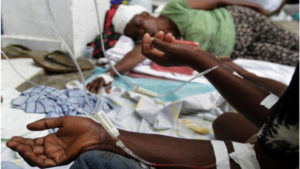The international medical humanitarian organization Médecins Sans Frontières (MSF), also known as Doctors Without Borders, has issued a grave warning over the worsening cholera outbreak in Zamfara State, Nigeria. The outbreak, raging amid insecurity, displacement, and inadequate access to clean water and sanitation, has already led to over 1,500 suspected cases within just a few months and continues to threaten more lives if urgent interventions are not scaled up.
Between mid-June and early August 2025, MSF-supported health facilities in Zamfara reported more than 1,500 cholera cases, with hotspots including Shinkafi, Zurmi, and Talata Mafara. For example, Zurmi General Hospital treated 562 cases, Shinkafi recorded around 401, while Talata Mafara’s General Hospital saw over 600 cases—with Kayaye area severely affected. These figures present a dire picture, exacerbated by the rainy season, which floods and contaminates water sources, accelerating the spread of this waterborne disease.
Cholera, characterized by severe diarrhea and vomiting, can cause rapid dehydration and death within hours if untreated. The outbreak’s escalation is further fueled by poor sanitation conditions and the continuing challenges of insecurity that hinder effective healthcare delivery and water sanitation efforts.

MSF’s medical coordinator in Nigeria, Dr. David Kizito, emphasized the critical need for immediate scale-up of water, sanitation, and hygiene (WASH) interventions alongside health promotion activities. The activation of Zamfara’s Public Health Emergency Operations Centre on July 3, 2025, alongside efforts to establish cholera treatment centers at key hospitals, marks important steps in response. However, more decentralized oral rehydration points and equipped primary health centers are urgently required to treat mild cases and reduce complications.
Vaccination against cholera is also a crucial preventive measure MSF advocates to stem transmission and save lives. Meanwhile, the organization calls on residents to adopt simple but effective measures: boiling water, frequent handwashing, eating freshly cooked food, avoiding open defecation, and keeping vaccinations current.
The outbreak not only signals a public health emergency but highlights broader systemic issues linked to poverty, displacement, and fragile infrastructure in Zamfara. MSF remains committed to working alongside communities and health authorities to deliver timely treatment and support, reaffirming that “no one should die from a preventable disease.”
More than news- Its Icegate

